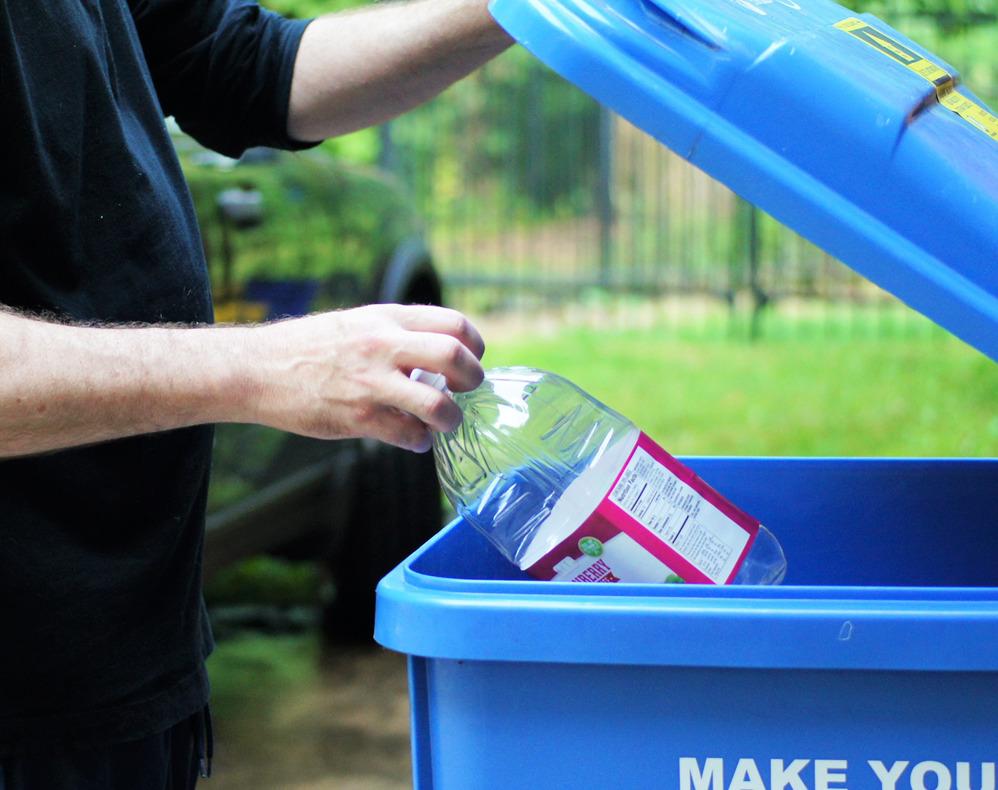Recycling is job one when it comes to keeping Earth's environment going for the next generation and the six after that. It's why we dutifully trot our newspapers, magazines, bottles, cans, and plastic milk jugs out to the curb each week. But what about all the other stuff?
The fact is, the resources that traditionally filled our blue bins is the low-hanging household-waste fruit, and much of what we discard is still a can-I-or-can't-I question mark when it comes to recycling. Here's a guide to the whys and wherefores of some of life's bigger curbside recycling mysteries:
- Drink Boxes and Juice & Milk Cartons. Most are made from 75-85% paperboard plus #4 plastic and/or aluminum foil. These extra layers and coatings are tough to separate, though new processing methods mean many programs finally accept them. Check with your local recycled program to see it's one of them.
- Takeout food containers. From a recycling perspective, these are made from coated paper and much the same as milk cartons. Some programs will accept them if you remove the wire handle and clean them well. Check locally!
- Plastic bottle caps. The Association of Plastic Recyclers, the industry organization who publishes recycling standards, specifies that caps be left on bottles so that they can be recovered.
- Plastic bags and wraps. Whether for shopping or sandwiches, most plastic bags, food wraps, and packaging for paper towels, bread, dry cleaning, etc. are made of #4 plastic. But their flimsy, lightweight nature easily creates litter and fouls recycling machinery so most programs refuse them. Look instead for bag collection bins at grocers and other retailers, which will take #2 and #4 when they are clean and dry.
- Bubble wrap. It's just like plastic wrap. Except for the adhesives used to create those fun little bubbles. That makes it quite unrecyclable in most locales. Donate yours to a local shipping center for reuse.
- Pizza boxes. Some recycling programs reject them, due to the grease and other food bits pizza leaves behind. They're public enemy #1 when it comes to paper recycling, which uses water but not heat, and therefore makes oils and food remnants almost impossible to separate from the resulting pulp. The good news however, is that they are often accepted where commercial compost facilities are available.
- Tupperware® and similar containers. Because they're made from different plastics, food storage container systems were once impossible to recycle. But about a decade ago, companies started labeling them with Resin Identification Codes. If your containers have a code your program accepts, you're in luck.
- Polyvinyl chloride (PVC). PVC is challenging to recycle because it's a mix of so many different compounds. Some programs will accept #3 bottles and other PVC products like shower curtains and old pipes. Some won't.
Always check with your local authorities to see what's accepted and what's not. When in doubt, just throw it out. Non-recyclables can easily contaminate batches of recycled material and make them unusable. If your program doesn't accept a material you have, consult Earth911 for a complete guide to recycling and a searchable national database of places to recycle your waste.
Seventh Generation supports the zero-waste movement and is committed to improving our packaging so that we are in line with this ideology in the near future. Zero waste encourages the reshaping of resource use from product creation to disposal. The end goal is that industry manufacturers use the properly recycled items to help make new products, thus creating less waste in the world. [1]
We use post-consumer recycled plastic (PCR) as a key component in our plastic bottles in an effort to reduce the amount of virgin plastic in bottles. With every decision Seventh Generation makes it considers the impact that our business has the on the next seven generations. This includes most importantly our impact on the environment and the world that we share.
References:


